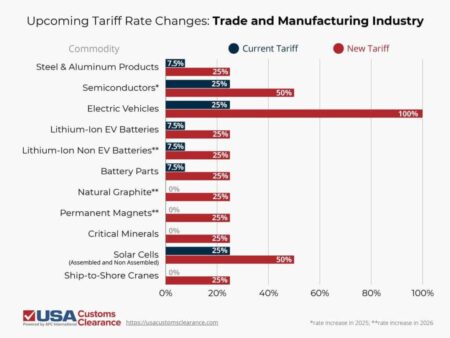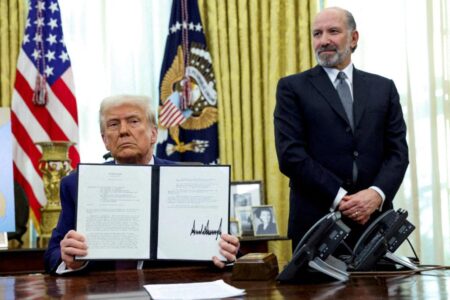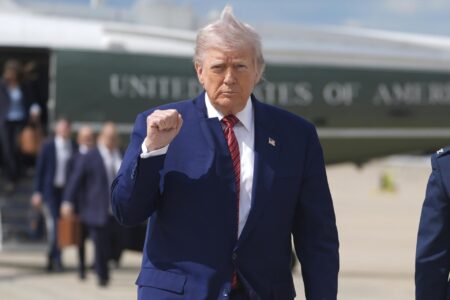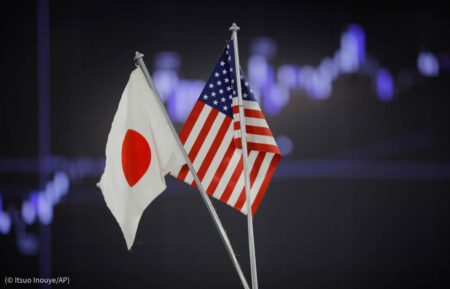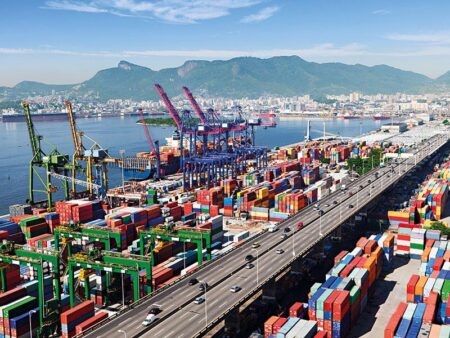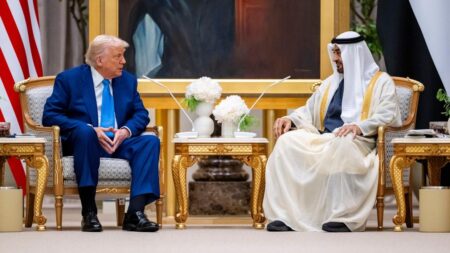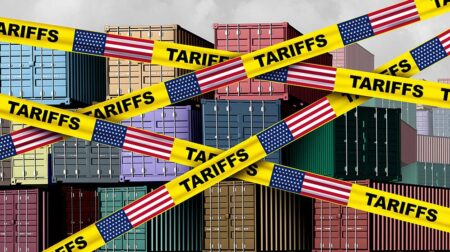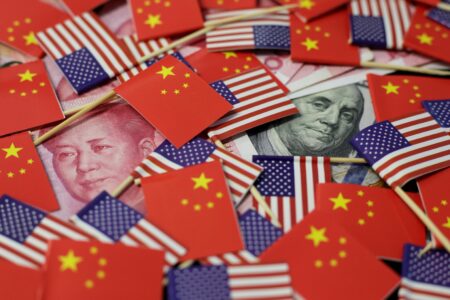German Finance Minister Christian Lindner emphasized the urgent need for the United States to swiftly address tariff issues, highlighting their crucial role in fostering global trade stability. His comments arrive at a pivotal moment as discussions continue around trade policies that significantly impact the economies of both nations.
Browsing: international trade
Argentina’s black market for dollars is witnessing a notable decline as the government takes steps to relax stringent currency controls. This strategic shift is designed to bring stability to the economy, yet hurdles remain. With inflation and economic uncertainty still looming large, public confidence continues to waver.
As tariffs transform the global marketplace, Chinese consumers are embracing domestic brands over international giants like Apple. This exciting shift underscores a powerful trend in China, fueled by a spirit of nationalism and a surge in innovation that champions homegrown products
In a dramatic turn of events, former President Trump has intensified his threats against tech titans such as Apple and Samsung, along with the European Union. This bold maneuver marks a significant escalation in the ongoing trade war, raising concerns about its potential ripple effects on global markets
In a significant diplomatic breakthrough, French President Emmanuel Macron and Chinese President Xi Jinping have joined forces to tackle the enduring cognac trade dispute. This exciting collaboration is set to strengthen bilateral trade relations and bring economic benefits to both nations.
A federal judge has delivered a pivotal ruling, affirming that former President Donald Trump was well within his legal rights to impose tariffs on Chinese goods. This decision not only represents a major win for the White House but also has the potential to shape the ongoing discussions surrounding trade policies.
Japan and the United States are set to draw from their previous foreign exchange agreement in their upcoming discussions, as revealed by Finance Minister Shunichi Kato. This strategic approach highlights a strong commitment to fostering currency stability and enhancing trade relations between the two nations
In a proactive move to protect its poultry industry and ensure public health, Japan has put a hold on specific poultry imports from Brazil due to a recent bird flu outbreak. This decisive action underscores the country’s commitment to maintaining food safety standards. Authorities are vigilantly tracking the situation for any new updates.
BYD’s bold vision for expansion in Brazil is hitting some serious roadblocks, as local car manufacturers rally for higher tariffs on imported electric vehicles. These rising trade tensions could put a damper on BYD’s growth ambitions in the fiercely competitive Brazilian market.
Brazil’s chicken exporters are on high alert as a recent bird flu outbreak sends ripples of concern through the industry. With the threat of potential cargo rejections looming, the stakes have never been higher. The spread of this virus could shake up the country’s poultry market, jeopardizing vital trade relationships and economic stability.
Japan is ramping up its efforts to persuade the United States to lift tariffs, highlighting growing worries about trade barriers that impact their relationship. This push comes during crucial negotiations, as Japan aims to boost economic collaboration and forge even stronger connections.
Brazil and China are embarking on exciting trade discussions focused on boosting sustainability. By harnessing their agricultural prowess and cutting-edge technological innovations, these two nations are poised to harmonize economic growth with environmental objectives, paving the way for a new era of global cooperation.
Former President Trump’s recent tariff truce with China has sparked a wave of concern regarding the United States’ credibility in trade negotiations. Critics warn that by easing pressure on Beijing, the U.S. may be jeopardizing its commitment to fair trade practices and its role as a leader in the global economy.
Japan’s booming resale of Australian LNG is sparking worries among local gas consumers. The Institute for Energy Economics and Financial Analysis has pointed out a troubling trend: the widening gap between soaring export profits and the rising costs of energy at home.
Luckin Coffee is excited to unveil its “Brazil Coffee Culture Festival 2.0,” a vibrant celebration designed to strengthen the economic and cultural bonds between China and Brazil. This initiative not only highlights the rich heritage of Brazilian coffee but also fosters cross-cultural connections, paving the way for new market opportunities
China has taken a bold step by imposing tariffs on plastic imports from the US, EU, Taiwan, and Japan, citing concerns over dumping practices. This move signals a dramatic escalation in trade tensions as Beijing seeks to safeguard its domestic industry amidst the backdrop of ongoing global trade disputes
New tariffs aimed at revitalizing American manufacturing are unexpectedly pushing businesses to seek opportunities in Canada. Companies are highlighting the allure of lower production costs and more favorable trade conditions as major reasons for their move, posing a significant challenge to U.S. policy objectives.
China continues to hold a commanding position in the export of rare earth metals, even as it eases some restrictions for the U.S. market. This strategic decision highlights China’s pivotal role in the global supply chain, significantly impacting industries that depend on these vital materials
Firms in Guangdong are breathing a sigh of relief following a recent ‘ceasefire’ in US-China trade tensions, sparking renewed optimism for stability. Yet, as geopolitical uncertainties linger, many are shifting their focus towards diversification strategies to safeguard against potential risks.
Amid rising trade tensions with the U.S., China is encouraging its exporters to explore new markets beyond their traditional boundaries. Although this shift to alternative regions appears simple on the surface, experts warn that navigating logistical hurdles and regulatory complexities could pose significant challenges for a seamless transition.


